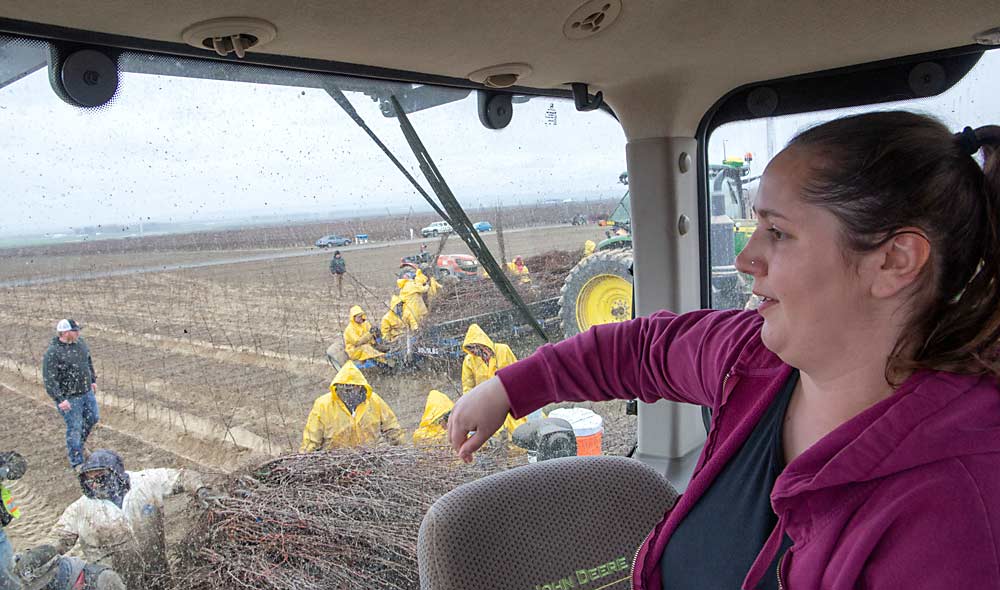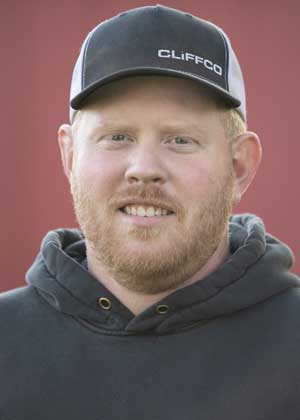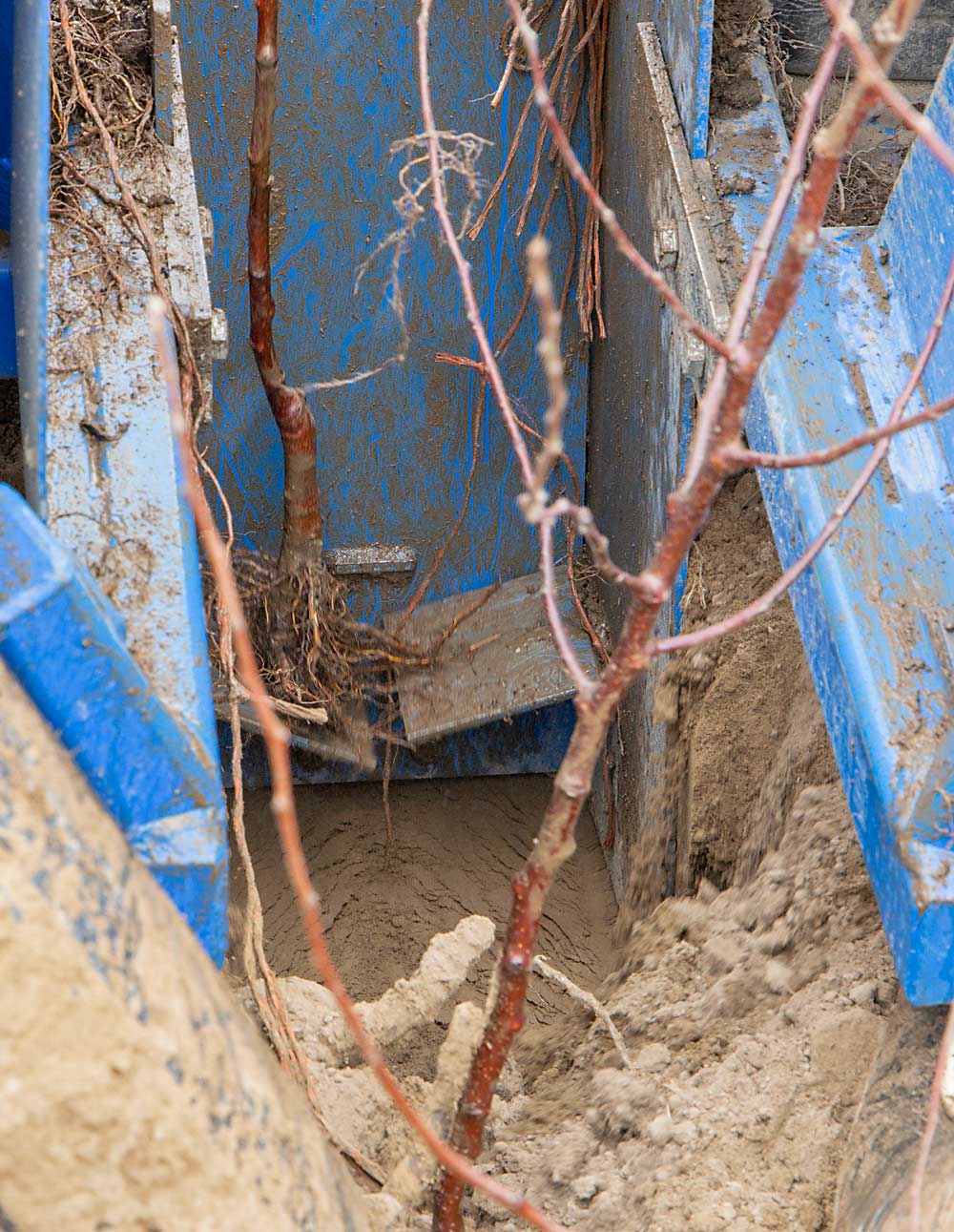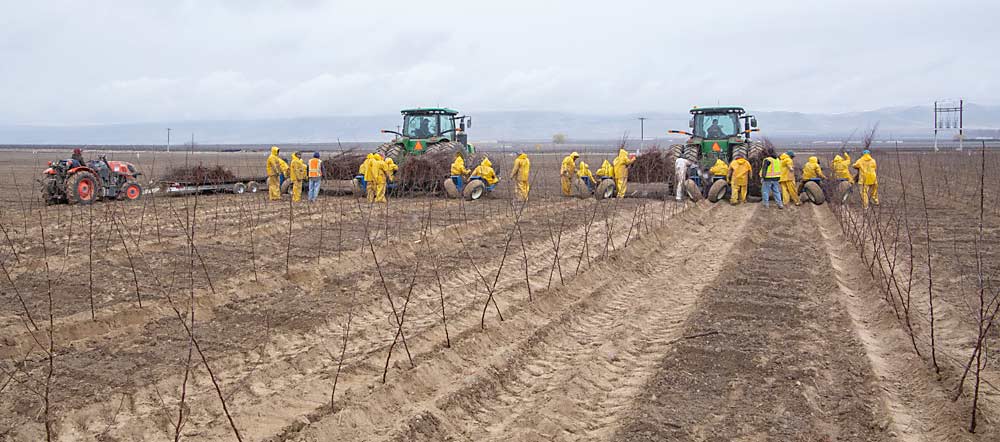
For his orchard and vineyard planting business, Andy Freepons customizes almost all his equipment to his liking. He hooks up GPS systems to machines and syncs them to trapdoors he builds in his shop.
He never studied engineering.
“I just played with a lot of Legos,” he said with a laugh.
Freepons is the owner of Square Rooted, a custom planting business based at his home north of Prosser. He’s one of a few custom planting businesses in Central Washington, but he’s one of the only ones to rely solely on spring planting for his income. Others offer trellis installation and soil amendments, as well.

Freepons grew up farming apples, grapes and corn with his parents, Tom and Linda Freepons. They now lease out their property and own an excavation business, TNT Excavation and Heavy Hauling. He likes to joke that his father sometimes pulls out trees for a living, so he makes up for that by planting.
To make ends meet, Freepons helped his father and drove equipment for wheat harvests and other odd farming jobs, both before and after he founded Square Rooted in 2014. But he and his wife, Hannah Freepons, a commercial pilot for SkyWest Airlines, have one young child with another due in October. He wanted more steadiness in his work life, and he likes running his own business, so he set aside those side hustles to focus on planting.
He figured this business would pay the bills because GPS units were cost-prohibitive for small growers, who would then have to learn the technology. He reckoned he could plant faster, cheaper and more precisely than they could on their own.
“That’s what Dad always said: ‘Better, faster, cheaper,’” he said. “We do OK.”
Technology and mechanics
“I also like figuring this stuff out,” he said.
By “this stuff,” he means the marriage of GPS technology and blue-collar farm mechanics that allows him to place trees within a couple of inches of perfection across hundreds of acres.
Equipment manufacturers build orchard planters, the kind on which crew members sit, sort through a bundle of tree branches and plant in a machine-dug furrow just below their seats as the whole contraption is towed behind a tractor.
Freepons combined three of those planters to be towed behind a single tractor for planting three rows at a time. He also built his own machines, figuring he could do so cheaper than what companies charged.
He linked the tractor to a John Deere GPS system and the planter to a GPS program called Trimble. Later, John Deere invented its own planting GPS and invited Freepons to join in beta testing, so many of the features offered today are things he sought.
To boost precision even more, he built tiny trapdoors on his GPS-calibrated planters, so the worker needs only to hold a tree above it and insert it in the furrow when the door springs.

To keep up with the rise of potted trees, he is working on a tube to guide each planting. He now owns four three-row tree planters, one two-row tree planter and one three-row grapevine planter.
His customers are mostly smaller producers, who lack the capital to invest in their own expensive equipment, or farms owned by investment companies. Sometimes he uses the GPS equipment to map out irrigation for farms.
His business started with about 300 acres in 2014. This year, as of mid-September, he has planted 1,375 acres, with more on the way. He employs a few operators while he spends his time lining up jobs and maintaining the equipment. Before their first child was born, Hannah sometimes operated the machinery, for cross-marking but not planting — which moves too slow for someone used to measuring speed in fractions of Mach.
Custom planting goes precise
Custom planting is a niche industry in Central Washington fruit and wine country. Many producers own their own planting equipment, but even the big ones get too busy sometimes and call for help, said David Olivera of Moxee, who owns Trellis Northwest with his father, Armando.
The father-son duo both worked for several years at Pro Ag Services, a Toppenish company that does custom planting, among other services, before forming their own business last year.
Their first planting season has been booked seven days a week, Olivera said. But he and his father plan to stay busy with trellis work year-round.

Like everything else in tree fruit, planting has become more and more precise. Olivera grew up around farming but intended to make a career out of social work. The tech-savvy young man didn’t like that as much as he thought, and Pro Ag asked him to help integrate GPS into its work.
“I wouldn’t be able to do this without GPS,” he said.
So far, he and his father have one single-row planter.
Most of Olivera’s customers have known him for years, and he advertises on social media.
Freepons relies mostly on word-of-mouth advertising, though he has exhibited at one trade show. He wants his business to grow a little more but is trying to figure out how to manage that when the work has such a narrow season, especially in a late spring such as in 2022. He has pictures of his machine planting in the snow during the infamous April snowstorm that year. Work lasted only a few minutes before crews called it quits.
—by Ross Courtney






Leave A Comment